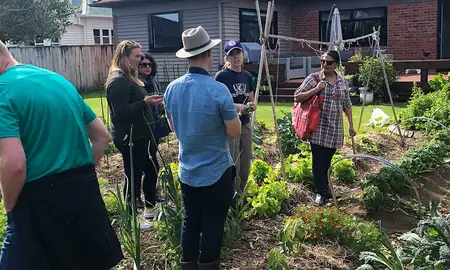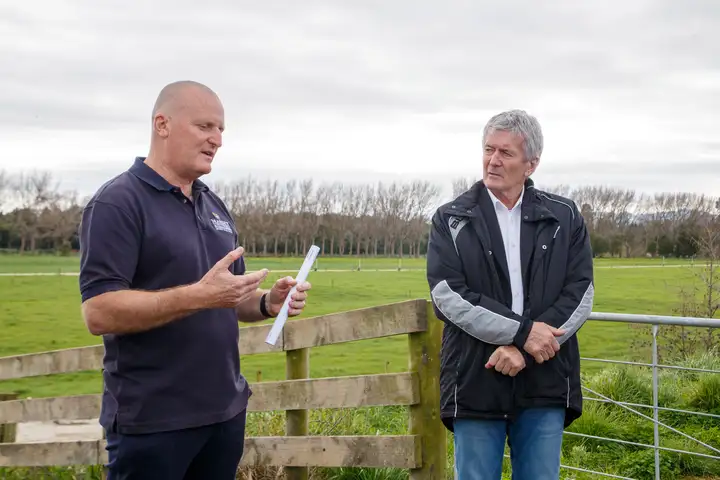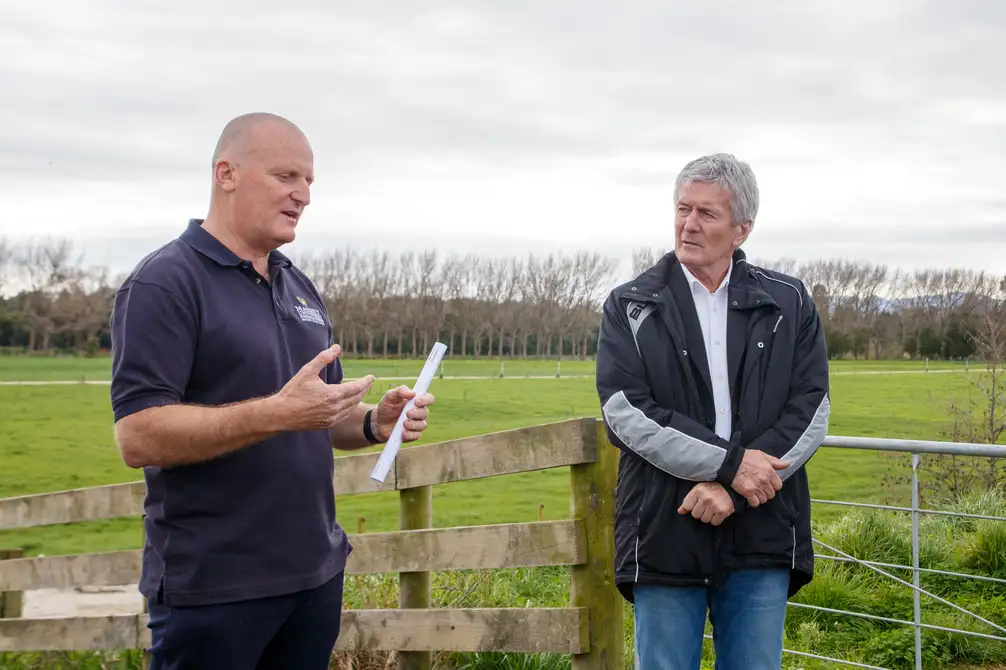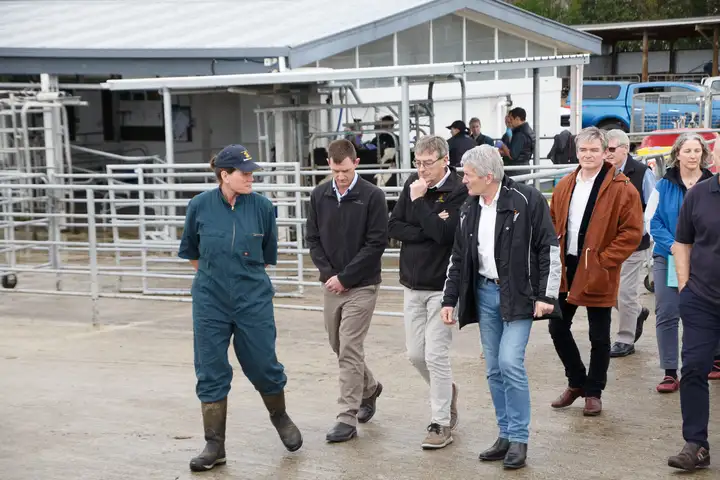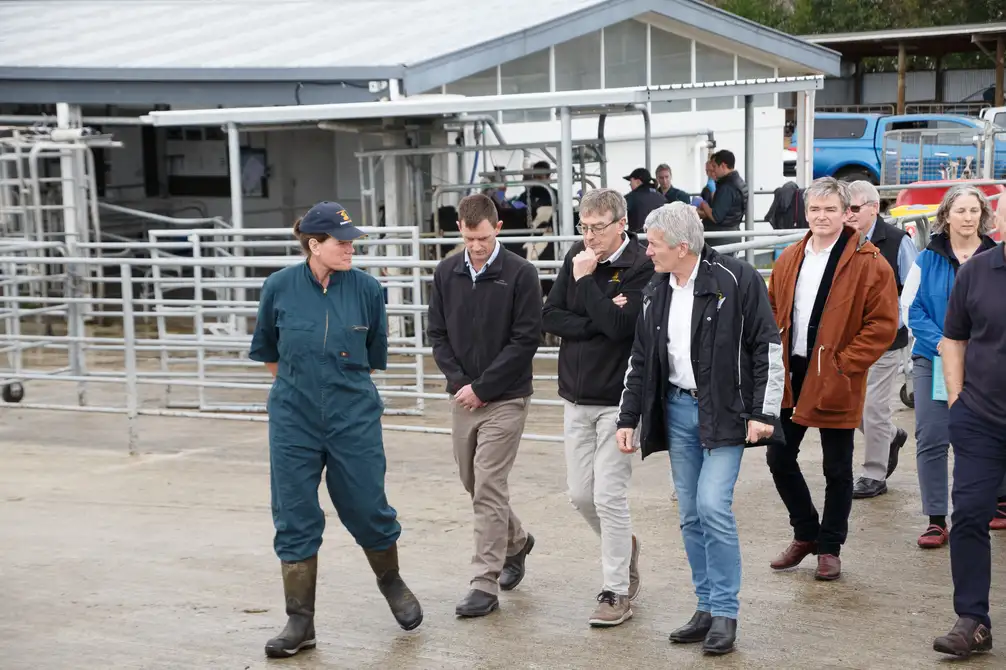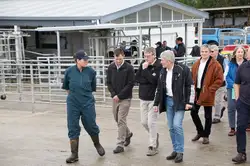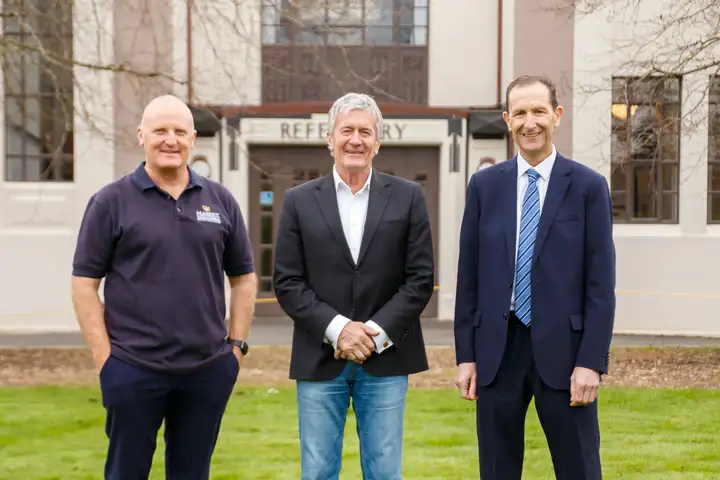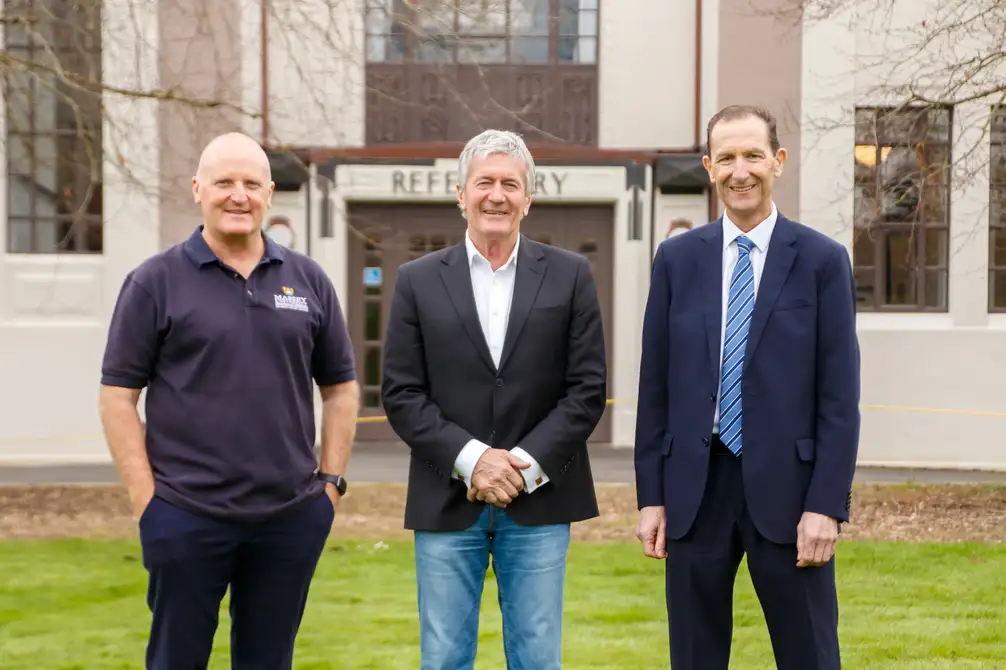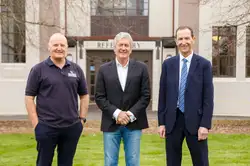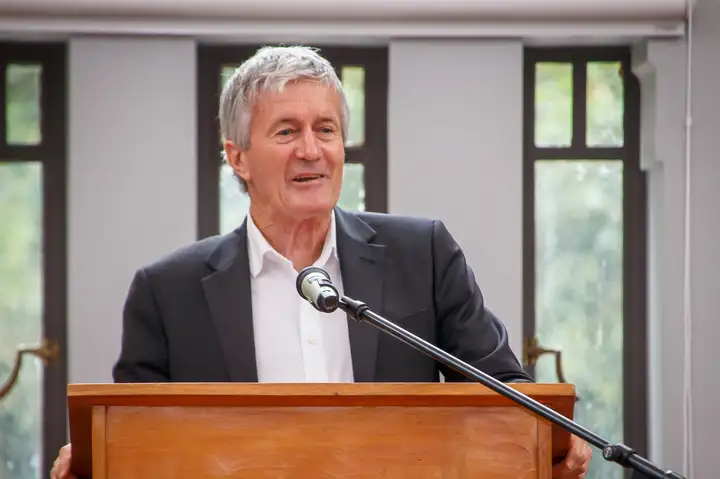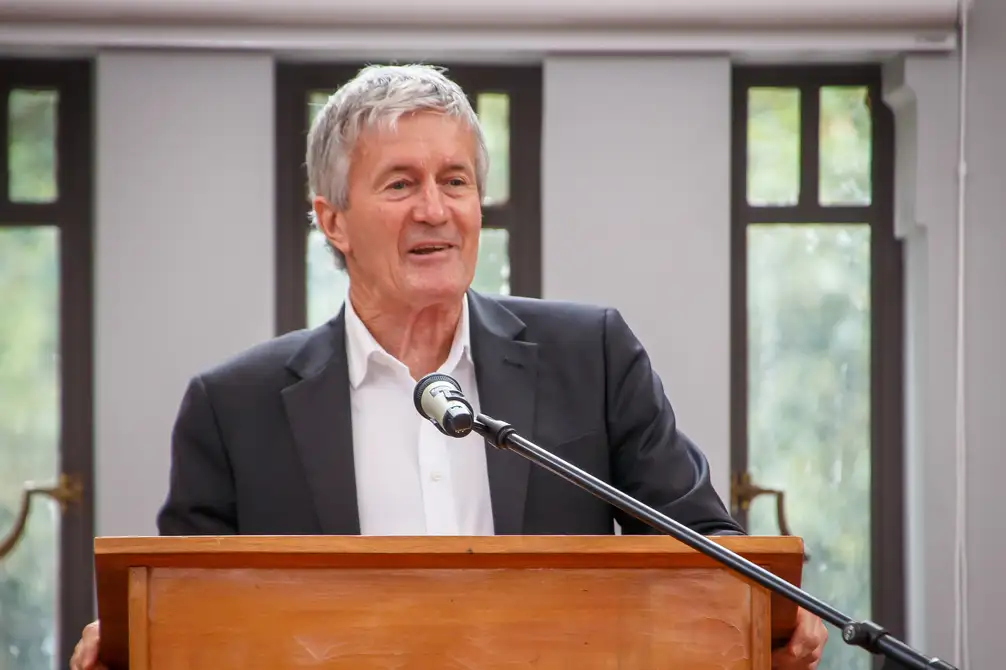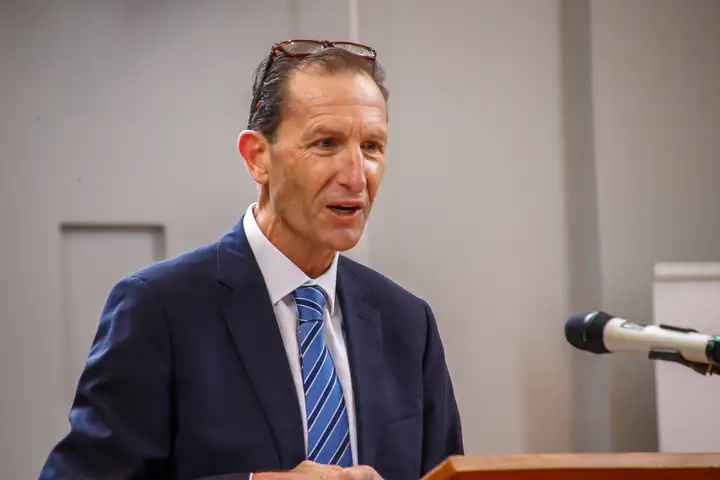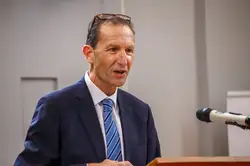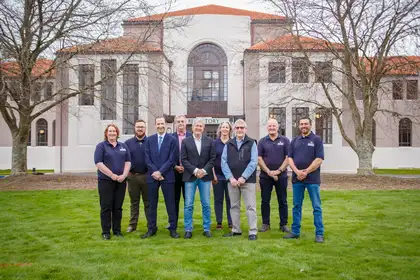
Agriculture Minister Hon Damien O’Connor (fifth from left) paid a visit to the Manawatū campus to launch the programme.
Led by Massey, with research partners AgResearch, Lincoln University, and Dairy Trust Taranaki, the $26.12 million Whenua Haumanu programme will start in 2022 and continue for seven years. The Government is a key partner through its Sustainable Food and Fibre Futures (SFF Futures) fund, which is administered by the Ministry for Primary Industries.
The research team will investigate multiple aspects of pastoral farming – from field to fork or pasture to plate. It stretches across the farm system, exploring from below the ground, through to animal product quality and food characteristics. Below ground measurements include investigations of soil biodiversity and microbial DNA, nutrient levels and losses, plant root growth, carbon cycling and storage, soil physical structure, earthworms and moisture levels. Above ground includes plant growth, quality and fermentation characteristics, persistence and health, greenhouse gas losses, animal production, reproduction and welfare, and the quality of animal products including meat, wool, milk and milk products.
Professor Danny Donaghy from Massey’s School of Agriculture and Environment and DairyNZ says, “This is the most comprehensive study that has been undertaken of pastoral systems, both conventional and incorporating regenerative farming practices. It will provide a robust evidence base to explore regenerative farming practices alongside conventional pastoral practices in both dairy and sheep systems.”
This research will be collaborative and focus on monitoring a variety of pastoral farming systems (both dairy cattle and sheep), to intensively investigate multiple aspects including regenerative farming practices. A key aim of the programme is to investigate potential benefits of diverse pastures for grazing animals, as well as regenerative farming practices, as these have yet to be thoroughly studied, especially in an Aotearoa New Zealand context. The understanding and results gained from the programme will be incorporated into models and tested across a wide range of sites across the country, to inform the international marketing of our agricultural products. Local iwi involvement is planned, and the programme already has the support of the Massey University Manawatū campus local iwi, Rangitāne, who gifted the name Whenua Haumanu. The team are also engaging with iwi groups in Taranaki.
Alongside the research team, other research partners include scientists from Manaaki Whenua – Landcare Research and the Riddet Institute, along with industry partners including Fonterra, Beef + Lamb NZ, DairyNZ, Pāmu, Northland Dairy Development Trust, the Fertiliser Association of NZ, Ravensdown Fertiliser Cooperative, Ballance Agri-Nutrients, Livestock Improvement Corporation, PGG Wrightson Seeds, Agricom, Barenbrug, On-Farm Research, AgFirst, and Quorum Sense.
The initial work within the programme is to establish the research farms with diverse pasture mixes. Adjoining and within paddocks, native browsable shrubs will be planted as shade and shelter options for grazing animals. There are three main research sites for the program: Massey University’s Dairy 1 farm grazed by dairy cows, and Pasture and Crop Research Unit grazed by sheep, and Lincoln University’s Field Research Centre grazed by sheep. Other collaborating sites include Dairy Trust Taranaki’s Waimate West farm, On-Farm Research’s project underway at the Poukawa Research Farm, and Northland Dairy Development Trust’s project underway at the Northland Agricultural Research Farm. The programme will allow all the farms to share results, research methods, and measurements.
The Whenua Haumanu programme will play a significant role in determining whether (and if so, how) diverse pastures and regenerative farming practices suit Aotearoa New Zealand dairy and sheep farms, through integrating the results of this research into existing whole-farm models or new purpose-built models. The programme aligns strongly with the Government’s ‘Fit for a Better World’ initiative, along with the Māori concept of Te Taiao and the framework of Te Mana o te Wai, the industry/Government/Māori partnership He Waka Eke Noa, the dairy industry’s Dairy Tomorrow strategy, and Beef + Lamb NZ’s strategy.
Related news
Massey key partner in programme supporting sustainable farming
A Dairy NZ led research project, in which Massey University is a partner, helping dairy farmers improve fresh water quality has just received a $8.98 million boost from the Government.
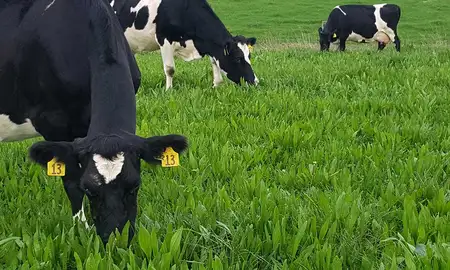
Agricultural short courses surpass 4300 enrolments
Demand for expertise in sustainable nutrient management, environmental planning and improved freshwater outcomes has seen Massey's range of agricultural short courses pass 4300 enrolments.
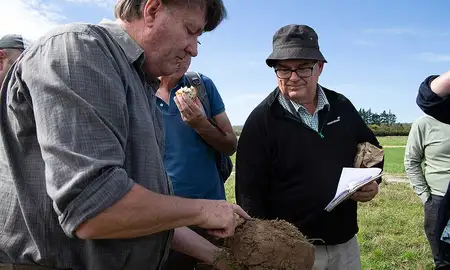
Research focus on Taranaki’s sustainable food producers
Massey researchers have been collaborating with local sustainable food growers in dairy stronghold Taranaki amid pressures to diversify the nation's farming practices.
